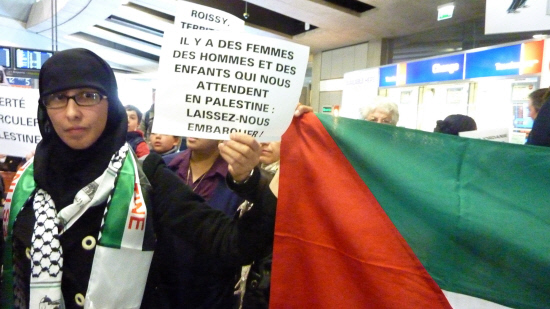CAIRO: Cairo-based National Societe Generale Bank (NSGB) expects to expand retail and corporate lending this year despite slower growth in Egypt, executives told Reuters on Wednesday.
Economic growth has dropped to around 4 percent from 7 percent last year as tourism revenues fall and a slide in global trade hits Suez Canal receipts, two of Egypt s top earners.
But analysts say the financial system is liquid, helping Egypt weather the storm.
With less opportunities, we will still have positive growth, a figure between 5 and 10 percent in corporate (lending) and between 15 and 20 percent in retail in 2009, managing director Guy Poupet said.
That is sustainable in the present environment, he added.
Many transactions in Egypt are cash-based with even large personal deals for property often involving handing over wads of notes. Analysts say only around 10 percent of the 77 million population have bank accounts.
But in a sign of the growing penetration of banks into daily Egyptian life, the executives said several companies, including state-run firms, were moving payroll operations to banks.
Even if there is a bit of a slowdown there are still more and more people becoming more affluent who need a bank account and could use the service of a bank, said deputy managing director Jean-Philippe Coulier.
NSGB, 77 percent owned by France s Societe Generale, has about 600,000 accounts in 130 branches and about 3,200 employees. It wants to add 10 to 15 branches a year.
The executives said NSGB, which posted a 50 percent rise in net profit in the first quarter of 2009 to the equivalent of $56 million, was confident Egypt had escaped the worst of the global crisis but was eyeing weakness in some sectors.
Conservative banks
We know we have a slump now but we already see the signs of a kind of recovery. It seems people are investing again. The crisis here has been limited and could be short-lived, Coulier said.
His comments echo statements by officials and independent analysts who have said Egypt s financial system has been liquid enough to help it sidestep the worst of the world credit crunch.
We pay attention to the indirect impact and the evolution, which means that we monitor some sectors. We monitor the evolution of activity, for instance in tourism, textiles, exportation, Poupet said.
We had a reduction in the volume of some transactions.
Many banks in Egypt are viewed as conservative lenders, maintaining a low loan-to-deposit ratio. NSGB said its ratio is higher than most due to a history of corporate lending.
We are now around 70 percent loan-to-deposit ratio. It is very high. The average is 50-55 percent in the market, Coulier said.
Gulf banks average around 85 percent, while in Europe and the United States the ratio can top 100 percent, analysts say.
The executives said NSGB would like to increase mortgages and home loans but was stifled by issues such as identifying property ownership.
We are a bit disappointed by the fact that the structure of the market hampers the growth of this activity (mortgages) but we are ready, we have everything in place, Coulier said.
The executives said NSGB launched an initiative in December to encourage more lending to small and medium-sized enterprises (SMEs) which has garnered between 500 and 600 clients.
We do it seriously. We did it ahead of the fashion and we are quite happy with the first results, Coulier said.
